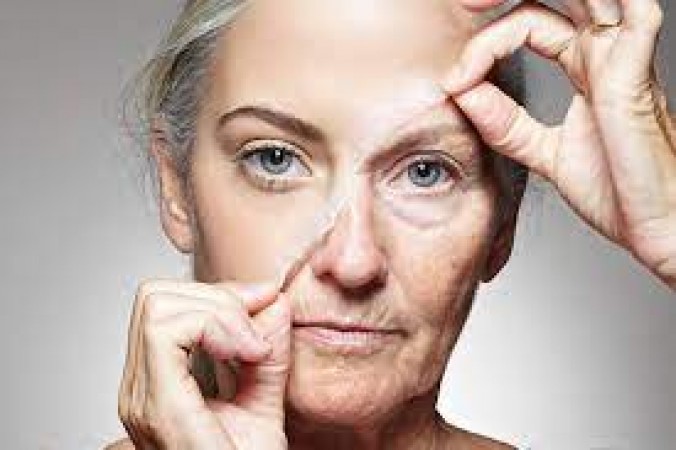
In today's fast-paced world, the effects of poor lifestyle choices are becoming increasingly evident as individuals prematurely show signs of aging. It's not uncommon to see people in their thirties and forties with visible wrinkles and fine lines, giving them an appearance far beyond their actual age. By the time they reach middle age, around 35 to 40 years old, skin often begins to lose its elasticity, contributing to a prematurely aged look akin to someone much older.
Understanding the causes of premature aging is the first step towards addressing it. Let's delve into the primary culprits behind this phenomenon and explore how to mitigate their effects.
1. Inadequate Nutrition
A diet lacking in essential nutrients such as vitamins, minerals, and antioxidants deprives the body and skin of the vital building blocks needed for repair and rejuvenation. Instead of nourishing foods like fruits, vegetables, and whole grains, many people opt for processed foods high in sugars, unhealthy fats, and preservatives. These choices not only fail to support skin health but actively contribute to inflammation and oxidative stress, accelerating the aging process.
How to Fix It:
Incorporate a variety of colorful fruits and vegetables into your diet. These are rich in vitamins A, C, and E, which are powerful antioxidants.
Choose whole grains over refined grains. Whole grains contain more nutrients and fiber.
Include healthy fats in your diet, such as those found in avocados, nuts, and olive oil, which help maintain skin elasticity and hydration.
2. Dehydration
Many individuals do not consume enough water, which is essential for maintaining skin hydration and elasticity. Dehydrated skin appears dull, dry, and prone to wrinkles, making it appear older than it should.
How to Fix It:
Aim to drink at least 8 glasses of water a day. Adjust your intake based on your activity level and climate.
Eat water-rich foods such as cucumbers, oranges, and watermelon.
Avoid excessive consumption of diuretics like coffee and alcohol, which can dehydrate the skin.
3. Alcohol and Smoking
Excessive alcohol consumption and smoking significantly contribute to premature aging. Alcohol is dehydrating and deprives the skin of moisture, leading to a lackluster complexion over time. It also dilates blood vessels, causing redness and exacerbating skin conditions. Smoking damages collagen and elastin fibers in the skin, leading to sagging and wrinkles. Both alcohol and smoking accelerate the formation of free radicals, unstable molecules that damage cellular structures and contribute to premature aging.
How to Fix It:
Limit alcohol intake to moderate levels. The CDC defines moderate drinking as up to one drink per day for women and up to two drinks per day for men.
Seek support to quit smoking. There are many resources available, including counseling, medications, and nicotine replacement therapies.
4. Environmental Factors
Exposure to environmental factors such as pollution and ultraviolet (UV) radiation from the sun further compounds these effects. Pollution introduces harmful particles into the air that can settle on the skin, causing inflammation and oxidative stress. UV radiation penetrates deep into the skin, causing DNA damage and triggering the breakdown of collagen and elastin fibers, leading to sagging and wrinkles.
How to Fix It:
Protect your skin from the sun by wearing sunscreen with at least SPF 30, even on cloudy days.
Wear protective clothing, hats, and sunglasses when outdoors.
Cleanse your skin thoroughly to remove pollutants, and consider using antioxidant serums to combat oxidative stress.
5. Chronic Stress
Chronic stress accelerates the aging process by releasing stress hormones like cortisol, which can impair collagen production and weaken the skin's barrier function.
How to Fix It:
Practice stress-reducing techniques such as meditation, yoga, or deep-breathing exercises.
Ensure you get enough sleep, as restorative sleep is crucial for skin health.
Engage in regular physical activity, which helps manage stress and promotes overall well-being.
Premature aging is largely influenced by lifestyle choices. By understanding and addressing factors such as poor nutrition, dehydration, excessive alcohol and smoking, environmental exposure, and chronic stress, individuals can take proactive steps to maintain youthful and healthy skin. Adopting a balanced diet, staying hydrated, limiting harmful substances, protecting the skin from environmental damage, and managing stress are crucial measures in saying goodbye to premature aging and enjoying a more youthful appearance for years to come.
BIMSTEC Foreign Ministers Meet PM Modi on Regional Cooperation
Why Sleeping with Your Mobile Phone Can Harm Your Health
Revolutionary Robotic Heart Surgery: A New Era in Cardiac Care